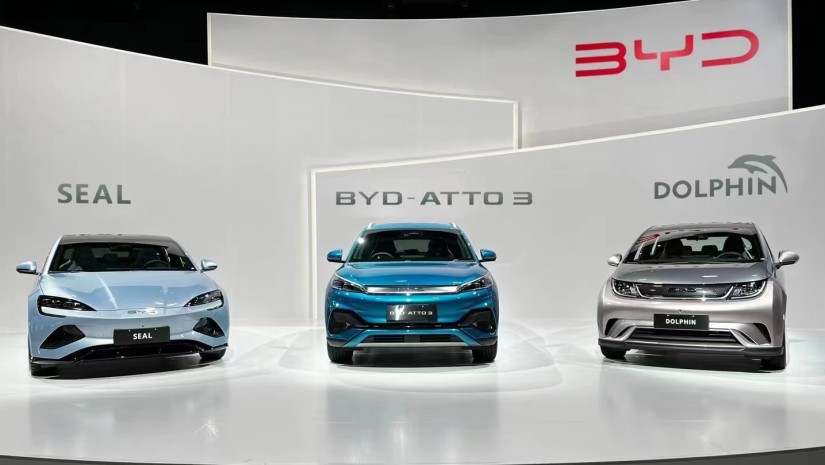A few years ago, the founder of Chinese automaker BYD was worried it might not survive. Now, the company is nipping at the heels of Tesla as the world’s No. 1 seller of electric vehicles.
BYD, short for Build Your Dreams, sold 431,603 fully electric cars in the third quarter, just shy of Tesla’s TSLA -1.53% decrease; red down-pointing triangle 435,059. It’s on track to sell around 1.8 million EVs by year-end. That would tie it with Tesla, which has set the same EV sales target for this year, up from 1.31 million it sold in 2022.
BYD, though founded in 1995 as a battery maker, has rocketed up the ranks in just the past few years. The company, which also sells hybrid gasoline-electric cars, plans to sell 3.6 million total vehicles this year, likely putting it in the global top 10 automakers by unit sales. It has surpassed Volkswagen as the bestselling car brand in China and is growing into an export powerhouse.
The leaps are a testament to the ambition of the two executives. Founder Wang Chuanfu, 57, born to rice-farmer parents, was orphaned as a child and became an expert battery engineer. His longtime partner, Stella Li, 53, helped sell Warren Buffett’s Berkshire Hathaway on the idea that an obscure Chinese company could grow into a global auto giant.
Wang, widely known in China, is a merciless cost-cutter who still flies economy and wheels his own suitcase. Li, who keeps a lower profile, is responsible for overseas business and sales and has negotiated a number of the biggest deals that have helped put BYD on the map. People who know the two describe them as “Mr. Inside” and “Ms. Outside,” with Wang focusing on making the products and Li selling the company to business partners.
Executives at BYD said it is common knowledge within the company that Wang and Li are a couple, and one person who met Wang and Li said they were introduced as husband and wife, an aspect of their relationship that hasn’t been reported in international media.
A BYD spokesperson said BYD values teamwork as the company puts emphasis on technological development and building a system, and not on individuals, without commenting on Wang and Li.
BYD’s rise echoes the story of many Chinese companies, and Korean and Japanese ones before them. BYD started by copying Toyota products, then grew so proficient at cutting costs that Toyota’s then-Chief Executive Akio Toyoda visited to learn its secrets. Chinese officials poured in subsidies and bought BYD vehicles for government fleets while stimulating the broader EV market with help from buyers.












